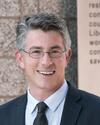In The News: William S. Boyd School of Law
President Donald Trump plans to sign an executive order this week for federal agents to take control of several cities under Democratic leadership, including New York.

“There’s no law,” Las Vegas visitor Genevieve Peters proclaims in the middle of the Wynn Las Vegas casino as she records video of security guards attempting to usher the woman and her friends out of the property for not wearing masks. “It’s illegal and it’s unconstitutional. But yet we are getting walked out by staff.”

Clark County is moving to set up protections for people whose housing security has been shaken by the coronavirus pandemic, starting with threatening landlords and others with a misdemeanor if they discriminate against certain renters.
A federal district court in Georgia (2007) rejected on ministerial exception grounds the lawsuit by an African American pastor, the “director of worship arts,” for race discrimination. One of the things his pastor told him was “this is a white church, Shirley Caesar music won’t work here,” and “since you’ve come, the church is experiencing white flight.”

The next time you shop around for financial advice, more investment professionals will be able to assure you that they’re acting in your “best interest.” But what’s really in your best interest is understanding precisely what that means.

Immigration and Customs Enforcement officials backed away from a controversial rule that would have blocked international students from staying in the U.S. if their colleges went online-only amid the pandemic, telling a federal judge Tuesday that it would “return to the status quo.”
In the middle of June—when coronavirus cases were rising and it was clear that the United States was deporting COVID-19-positive asylum seekers—the Trump administration released a proposed rule that, if implemented, would devastate the entire asylum system.
On July 6, Immigrations and Customs Enforcement announced stunning new guidelines for colleges and universities preparing to return to classes in the fall during the pandemic. ICE said that international students whose universities go all-online in the fall would not be able to remain in the United States.
In Episode 13 of Non-Compliant, we had the first part of our conversation with Processor Nancy Rapoport. During the episode, we discussed how COVID-19 will permanently redefine how lawyers work and their need for a physical workspace, fee arrangements, and how cases are billed. In part two of our conversation with Professor Rapoport, we focus on the impact of COVID-19 on law firm staffing, the hiring and recruitment process, and diversity initiatives.
The US Supreme Court has ruled 7-2 to allow a New York prosecutor to obtain President Donald Trump's financial records as part of an ongoing criminal investigation, but rejected, also in a 7-2 ruling, the records' release to Democratic congressional committees.

After the Supreme Court decision to maintain the Deferred Action for Childhood Arrivals (DACA) program, different organizations have begun to suggest to people - that they could obtain this permit for the first time - prepare the necessary documentation to be ready in case the authorities announce that they will be receiving new applications.
Benjamin Edwards, a professor at William S. Boyd School of Law at University of Nevada in Las Vegas, discusses additional rewards necessary for an effective consumer protection in the payday lending industry.





